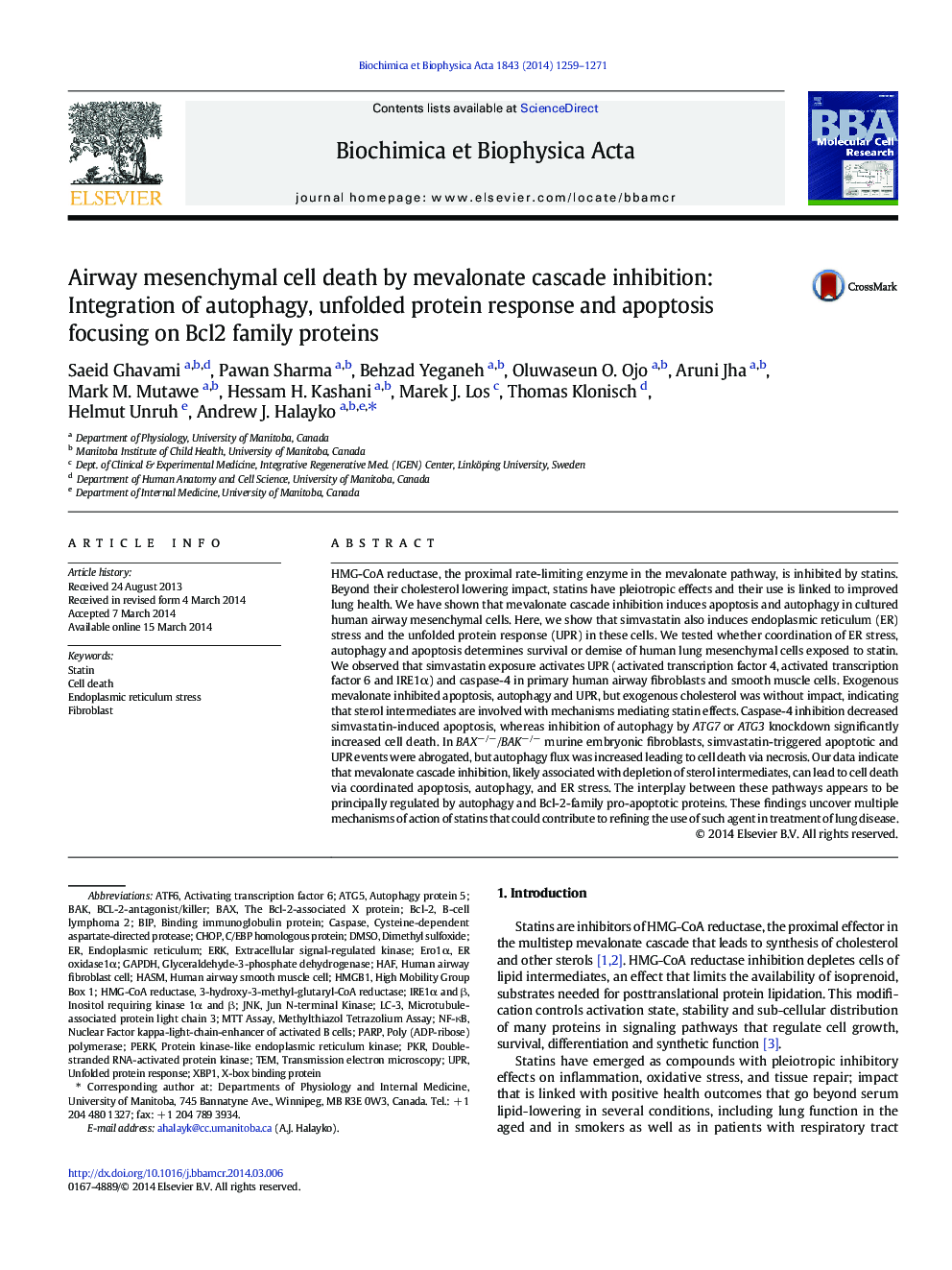| کد مقاله | کد نشریه | سال انتشار | مقاله انگلیسی | نسخه تمام متن |
|---|---|---|---|---|
| 1950573 | 1055664 | 2014 | 13 صفحه PDF | دانلود رایگان |

• Simvastatin induces apoptosis, autophagy, UPR in human airway mesenchymal cells.
• Exogenous mevalonate inhibits simvastatin induced apoptosis, autophagy and UPR.
• UPR-dependent caspase inhibition (Caspase-4) decreases simvastatin-induced apoptosis.
• Autophagy inhibition significantly increases simvastatin-induced apoptosis.
• Simvastatin induces necrosis in BAX−/−/BAK−/− model.
HMG-CoA reductase, the proximal rate-limiting enzyme in the mevalonate pathway, is inhibited by statins. Beyond their cholesterol lowering impact, statins have pleiotropic effects and their use is linked to improved lung health. We have shown that mevalonate cascade inhibition induces apoptosis and autophagy in cultured human airway mesenchymal cells. Here, we show that simvastatin also induces endoplasmic reticulum (ER) stress and the unfolded protein response (UPR) in these cells. We tested whether coordination of ER stress, autophagy and apoptosis determines survival or demise of human lung mesenchymal cells exposed to statin. We observed that simvastatin exposure activates UPR (activated transcription factor 4, activated transcription factor 6 and IRE1α) and caspase-4 in primary human airway fibroblasts and smooth muscle cells. Exogenous mevalonate inhibited apoptosis, autophagy and UPR, but exogenous cholesterol was without impact, indicating that sterol intermediates are involved with mechanisms mediating statin effects. Caspase-4 inhibition decreased simvastatin-induced apoptosis, whereas inhibition of autophagy by ATG7 or ATG3 knockdown significantly increased cell death. In BAX−/−/BAK−/− murine embryonic fibroblasts, simvastatin-triggered apoptotic and UPR events were abrogated, but autophagy flux was increased leading to cell death via necrosis. Our data indicate that mevalonate cascade inhibition, likely associated with depletion of sterol intermediates, can lead to cell death via coordinated apoptosis, autophagy, and ER stress. The interplay between these pathways appears to be principally regulated by autophagy and Bcl-2-family pro-apoptotic proteins. These findings uncover multiple mechanisms of action of statins that could contribute to refining the use of such agent in treatment of lung disease.
Journal: Biochimica et Biophysica Acta (BBA) - Molecular Cell Research - Volume 1843, Issue 7, July 2014, Pages 1259–1271